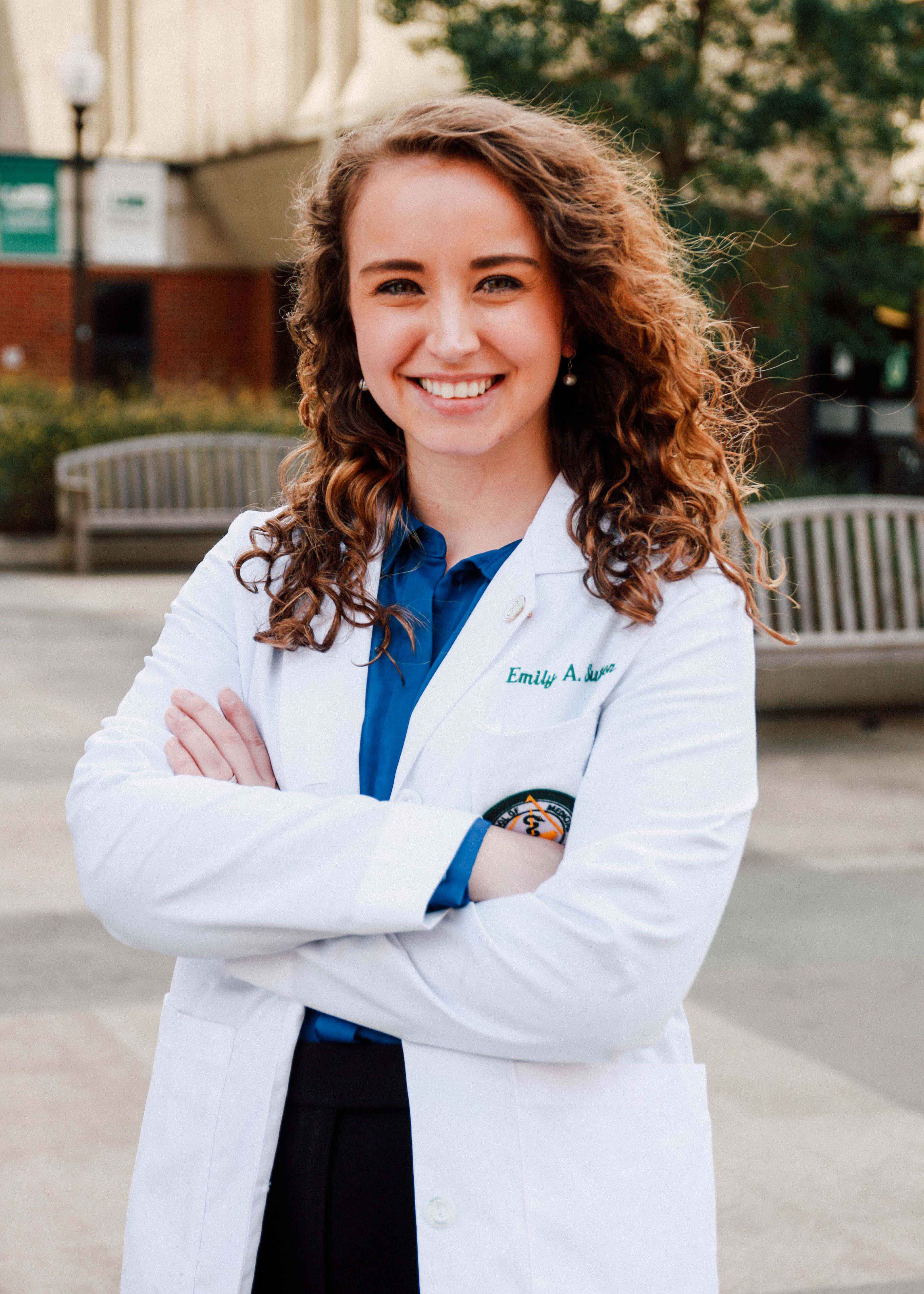 When Emily Brown, MS2, was a high school student, she had an emergency that landed her in a local emergency room. A native of Alabama, Brown says her rural town's ER was not able to take care of her, and she was airlifted to Birmingham for treatment.
When Emily Brown, MS2, was a high school student, she had an emergency that landed her in a local emergency room. A native of Alabama, Brown says her rural town's ER was not able to take care of her, and she was airlifted to Birmingham for treatment.
“The doctor looked at my mom and said ‘I can’t take care of her here. I wish I could, but I do not have what I need.’ The doctor in my rural town truly did everything he could to help and it was obvious that he cared.”
Brown says that experience taught her firsthand about the biggest barriers in rural health—distance from big city resources and having access to modernized technology.
Brown is a true pipeline success. As a high school student, she was accepted into the Rural Health Scholars program. Inspired by her own family medicine practitioner, she saw the obstacles to accessing modern equipment as an adolescent patient.
When she entered college, Brown jumped at the opportunity to become a counselor for her younger high school peers enrolled in the Rural Health Scholars Program.
Now, a rising MS3, she is a Rural Medicine Scholar, and on that track students work firsthand in primary care settings. The program allows students to participate in integrative curriculums for six months, instead of typical four-week rotations.
“This option is exciting because it gives medical students an opportunity to build relationships early in their education, and get to know patients,” Brown says. “I saw the same family physician from the time I was in kindergarten to adulthood, and was actually able to shadow in his clinic in undergrad. He knew who I was, and knew things about me other than my name.”
Brown is also involved in the Alabama Rural Health Association (ARHA), and acts as treasurer for the UAB chapter. Her goal as both a Rural Medicine Scholar and a member of the ARHA is to increase engagement and interest in rural health among students, trainees, and providers.
She says that if interests increase in rural needs, there is a better chance for funding and more accessibility. “I want to help other students in the School of Medicine see the positives in rural health. I’d also like to help other schools at UAB get involved in rural health programs to increase awareness about rural providers’ and patients’ needs.”
She’s interested in primary care specifically due to the unique one-on-one relationship opportunities with patients. “Rural care is very different from other care. Physicians in these areas may not have access to technology or necessary tools, so there’s an ongoing burden. But on the other hand, another difference in rural care than other regions is the strong relationships between patients and doctors.”
Brown’s advice to upcoming medical school students is to get involved, talk to people, and rely on mentorship. For those who may consider rural medicine, she advises students to research rural health and be willing to learn about the hurdles.
Brown says she hopes to end up practicing in a small, rural city, “somewhere that doesn’t have access to bigger city resources.” Her passion and future goals are to connect residents in rural areas to the health care they need.
